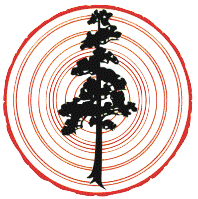BY-LAWS OF THE TREE-RING SOCIETY ARTICLE I: NAME AND OFFICES 1. Name. The name of this Society is Tree-Ring Society. 2. Offices. The principal office of the Society shall be in the County of Larimer, City of Loveland, State of Colorado, United States of America. The Society may also have offices at such other places as the Council may from time to time appoint or the services of the Society may require. ARTICLE II: ORGANIZATION The administration of the Society shall be vested in an Executive Council made up of eight elected officers (President, Vice-President, Secretary, Treasurer, Diversity, Equity and Inclusion (DEI), Communications, Student and Editor). Member-At-Large positions may be filled at the discretion of the Executive Council and are non-voting members as described in Article VII. The operations of the Society shall be conducted by the officers or their delegates. Delegated work shall be technically reviewed by the officers. ARTICLE III: OBJECTIVES 1. The objectives of the Society shall be:
ARTICLE IV: MEMBERS AND MEETINGS 1. Membership. a. Membership in the Society shall consist of five classes: Individual, Individual Reduced Rate, Individual Lifetime, Student, Retiree, and Institutional. Any person in accordance with the objectives of the Society may be admitted to membership. 2. Meetings.
3. Referenda.
ARTICLE V: EXECUTIVE COUNCIL
ARTICLE VI: OFFICERS
ARTICLE VII: OTHER COUNCIL MEMBERS Members-at-Large are non-voting members of the Executive Council, and are not elected by the Society. These individuals are appointed through a three-quarters majority vote of the Executive Council to assist the Society meet its objectives. Examples of Members-at-Large positions are listed (but not limited) below.
ARTICLE VIII: ELECTIONS
ARTICLE IX: FINANCES
ARTICLE X: OFFICIAL SOCIETY PUBLICATION
ARTICLE XI: AMENDMENTS
Last Revision of the By-Laws: March 4 2023 |
